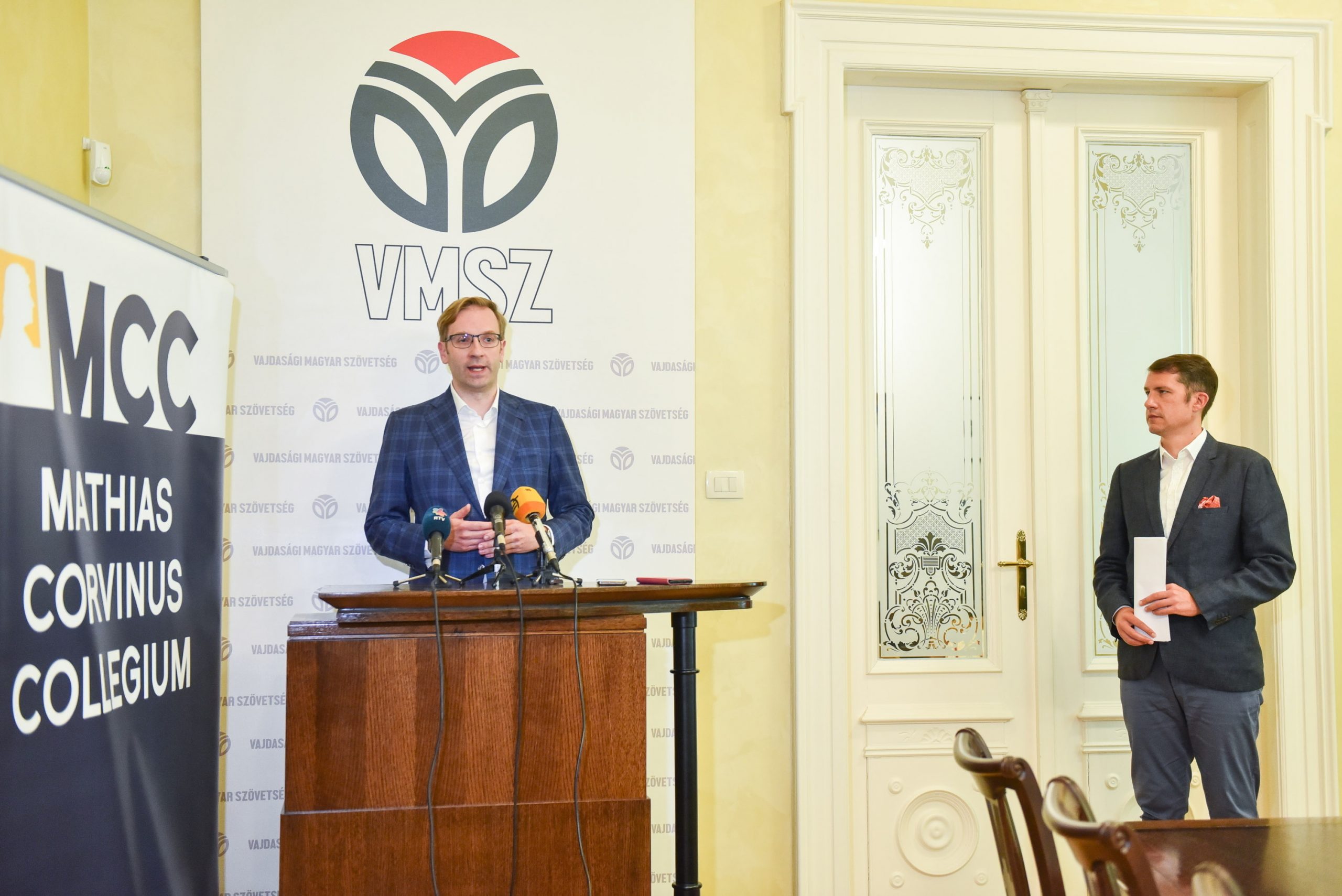Árpád János Potápi urges the educational institutions to participate, so that the concept of national unity is not just an empty slogan.Continue reading

The MCC’s center in Subotica (Szabadka, in Serbia) is an excellent training opportunity for young people from Vojvodina, preparing them to work for their homeland, their nation and for Hungary in the future, Zoltán Szalai, Director General of Mathias Corvinus Collegium (MCC), stressed on Wednesday on the occasion of the opening of the training center.
The MCC already has centers in Slovakia, Transcarpathia (Ukraine) and Transylvania (Romania), and we are very happy that they will be able to start working in Vojvodina from autumn, Zoltán Szalai told MTI in a telephone interview. In Subotica, the work will consist of a talent program for primary school pupils and a program for secondary school pupils, but they are also looking forward to welcoming teacher colleagues and parents who want to get involved in the MCC’s work, he added.
The MCC training centers operate all over the Carpathian Basin, and the new center in Vojvodina will also play an important role in helping young people to acquire excellent qualifications and skills that will enable them to have successful careers and prepare them to work for their home, their nation and Hungary in the future,
Zoltán Szalai said.
“The MCC has found a great partner in Bálint Pásztor, President of the Alliance of Vojvodina Hungarians (VMSZ), who has a well-established political, social and cultural infrastructure with the Hungarians of Vojvodina,” the Director General stressed, adding that the training is being implemented in cooperation with the VMSZ.
Mr. Szalai noted that, in his view, the MCC’s training is not just a textbook-based course, it starts where public and higher education ends. “It is for those who want a little more, who have more ambition and talent.”
The opening of the new center will give the opportunity for the youth of Subotica to meet young people with similar interests, who will become part of a Carpathian Basin-wide networking through the program,”
the Director General pointed out.
Speaking about the training courses, he noted that most of the programs require personal presence, which is considered very important after the changes under the Covid pandemic. The programs build communities of participants, young people with similar interests and ambitions can spend their free time together, go on excursions, participate in professional trips and events, he explained.
Via MTI, Featured image: MTI/Molnár Edvárd